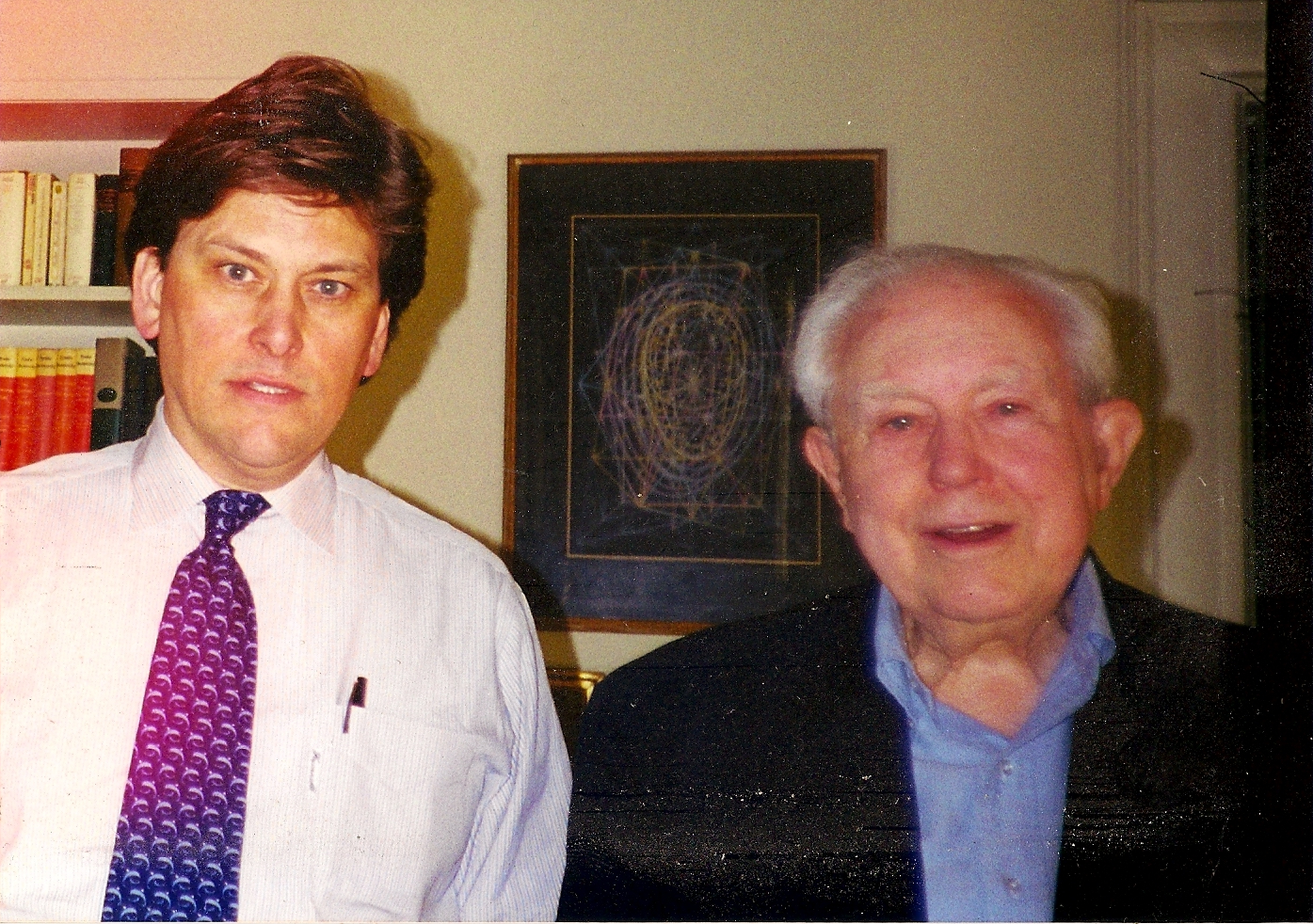by Christopher Fulkerson

CF and Elliott Carter, in Mr. Carter's home in New York, on the occasion of the Chicago Symphony Orchestra's Carnegie Hall performance of Carter's opera WHAT NEXT.
In 1976, shortly after graduating from college, I wrote the first of these two songs, to the poem "Eyes That Last I Saw In Tears." Later I learned this is one of two lyrics very similar in mood and intention, and which share several lines. I decided to do a setting of the second poem, "The Wind Sprang Up At Four O'Clock," and finally got around to doing this on May 19, 2004. I decided that the unusual formal pattern of deliberately similar songs might be interesting, and set the lines shared by the songs to the same music. I shaped the rest of the second setting accordingly. The title is meant to reflect that one song echoes another, as Eliot intended the poems to echo one another. Together the pair of songs are four minutes in duration.
I was very amused and pleased to see that in the blockbuster movie Indiana Jones and the Kingdom of the Crystal Skull, which was released on May 22, Wagner's birthday, in 2008, the first of these two poems I have set was one of the works of English literature apparently fetishistically quoted by the temporarily whacked-out Professor Harold "Ox" Oxley, Indiana Jones's friend, who first discovered the Crystal Skull and later returned it to where it came from. Professor Oxley had gone insane staring into the eyes of the crystal skull; in this way the movie's story draws one important sense from the Eliot poem. Professor Oxley only returns to normal once the skull is restored to its original location. The movie draws another sense from the poem: the "Kingdom of the Crystal Skull," as it is called in the movie, is evidently "Death's dream kingdom," as Eliot describes the locality of the poem. There are other correlations. For those interested in learning more about "Death's dream kingdom," the movie gives a rather full working out of that metaphor in the poem; Lucas Maps seems to say that you can get there by staring at the skull, and that you leave the place by putting the skull back where you found it. This movie is probably the biggest metaphor yet made for the recycling movement. Remember to recycle that cardboard box! But don't stare at it too long! I think everyone affected by that atomic blast should be paid damages, or at least, BEFORE the bomb goes off on them, be shown the refrigerator trick...
At Tanglewood I asked John Williams, who wrote the musical score for the movie, for a job doing orchestrations for him. He replied "I don't think Hollywood is the place for a serious composer." If this was his real reason for not hiring me, then this belief consigned me to the oblivion of a cab driving career, something a lot less musical than what I would have had, a job that is reckoned nowadays as the most dangerous job in America. But if my taste in literature runs so closely, how is it Hollywood is really so irrelevant to me, and in any case how can it be worse than the portion I got, namely cab driving?
The score is 16 pages long, in the composer's fair hand.
Hard Copy of the Score: $8
DOWNLOAD THE SCORE